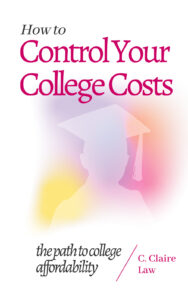College Applications, Clemson, and Early Deadlines.
Clemson is often the more selective university in South Carolina except for the University of South Carolina-Columbia’s Honors program. The latter has a full honors curriculum separate from all other offerings, whereas Clemson’s program simply adds an honors class for enrichment purposes each year.
Clemson’s applications shot through the roof last year, for academic year starting Fall 2021 ending in spring of 2022. They received 47,000 more applications than in the previous year. They enrolled their largest class ever, with 4,250 students. One reason may be that Clemson signed on with the Common Application in 2021-22, and with this application students can apply to multiple colleges. The second reason is that Clemson reluctantly but finally joined other colleges in going “test optional.”
According to FairTest, the National Center for Fair and Open Testing, more than 1,775 U.S. colleges and universities went test optional and continue to not require SAT or ACT for admission for the next admission year 2022-23 as well. College of Charleston already announced that it will remain test-optional for fall of 2023.
There was no trouble accommodating first-year students because Clemson kept tabs on housing previously reserved for transfer applicants. The thought was that older students can better manage to find an apartment in town. In fact, Clemson ended up with surplus housing.
Relative to COVID, Clemson students are getting tested each week with a positivity of only 1.07%. Starting in October, they will be tested every two weeks. They administer a saliva test and have the labs on campus provide results within a couple of hours. It’s a real benefit to have an institute of science and technology on campus that does the testing on the premises and even provides vaccinations. The ratio of vaccination for faculty members if 85% and 65% for staff members. Students can upload their COVID vaccination status to their portal. The funny part is that during home football games they provide testing stations at the game for family members and guests.
Clemson University provides three application forms: the Coalition Application, Common Application, and their own Clemson Application. I advise my lower-income families to use the Coalition Application because it’s set up to provide more information, and Clemson is very active on the board of the Coalition Application. The Common Application is by far the easiest and most useful application nationally because students can send the same form to as many colleges as they want. I discourage the use of the Clemson Application because it is unique to Clemson, and students would need to complete additional applications to apply to other schools. Seniors in high school are too busy to bother with filling out multiple applications. Clemson received that bumper crop of applications for 2021-22 academic year and 70% were Common Applications.
SRAR is an unpronounceable acronym! It stands for Self-Reported-Academic-Record. Most colleges are heading toward the self-service model, by requiring students to enter their own classes and grades on their applications. They are to provide an official transcript after they’re admitted and decide to attend. This eliminates a lot of work for guidance counselors because they don’t have to send official transcripts to various colleges and eliminates work for the college because it would need to catalogue and keep all those academic records secure under FERPA laws.
Many colleges are happy enough to receive the senior year grades through the Common Application, but in addition, Clemson still requires the student to write in all the classes they took starting from the 9th grade. If they took 8th grade classes that counted for 9th grade, they must list those as well, on a Clemson student portal.
By October 7th Clemson, which offers rolling admission only, had already received roughly 6,000 applications, which means they received 2000 applications more than this time last year. According to Clemson’s Associate Director of Admissions and Coalition Application Coordinator, Tim Galbreath, they see an uptick in applications when other South Carolina colleges have deadlines. The University of SC-Columbia for example, has an Early Action deadline of October 15th. Early Action (EA) is non-binding. It means the college will reply usually before the end of the year. Early Decision (ED) is binding, and it means that the student will enroll if accepted and withdraw all other applications. Clemson anticipates that by October 15th the number of applications will triple.
Clemson’s mid-range ACT is 28-32, which corresponds to SAT 1280-1400. The GPA Average Weighted: 4.28 for in-state students on SCUGS (South Carolina Unified Grading Scale). A slightly higher average is desirable for out-of-state students.
What does test optional really mean at Clemson? Last year 40% of students applied test optional. I advise my students with SAT lower than the ones stated above to not send them. If the scores are within the lower range, it will neither help nor hurt. Definitely send your scores if they are in the upper range! However, to qualify for the SC state aid students must meet one of three variables: grades, rank in class and standardized test scores.
This school official found that by not submitting test scores, some students who could have qualified for the Palmetto scholarship ($7,500 per year) ended up with the Life scholarship ($5,000) and some who could have qualified for the Life ended up with the Hope Scholarship ($2,800) which is for one year only. This was evident especially with the students who applied for Forestry and Agriculture. These are “needed-areas” of study, and applicants were competing within a smaller group. Many didn’t qualify for the SC state scholarship because their rank-in-class was low. Had they submitted their Standardized scores, they might have qualified for a higher scholarship.
Clemson is back at full-speed offering full in-person classes with the only requirement that students wear masks indoors. There are restrictions for visitors which has made college tours a bit awkward because they still can’t take guests inside buildings.
College application deadlines for first-year students can be quite confusing with each college having their “priority” deadline.
Application deadlines for SC public colleges:
University of South Carolina – Columbia
Early Action: October 15, 2021
Regular Decision: December 1, 2021
Clemson University
Rolling admission until full.
December 1 deadline to submit official transcripts and standardized test scores to receive priority consideration.
Clemson is test-optional for the 2022-23 academic year.
FAFSA deadline: January 2, 2022
Coastal Carolina
Rolling Admission until full or until July 28, 2022
College of Charleston
Early Decision: October 15, 2021
Early Action: November 1, 2021
Regular Decision: January 15, 2022
QUALIFICATIONS OF IECA CERTIFIED EDUCATIONAL PLANNERS
C. Claire Law has a Masters of Science Degree in Human Development & College Student Affairs. She is a Professional Member of IECA, which she joined in 1999, and reached the highest level of qualifications as a Certified Educational Planner (CEP).
A Certified Educational Planner has achieved the profession’s most rigorous educational standards, demonstrated the highest level of service to families, and adheres to a strict code of ethics.
IECA Certified Educational Planner must:
- Pass a board-certified assessment
- Hold a Master’s Degree and pertinent counseling experience
- Visit and evaluate a prescribed number or colleges, universities, boarding schools and therapeutic programs for teens at risk.
IECA – CEPs are evaluated every 5 years on the basis of:
– Continuing Education Credits
-Participation in Continual Professional Development
-Ongoing in-depth visits to enhance knowledge of colleges, boarding schools, therapeutic programs.
A CEP is an experienced professional who is committed to providing the highest quality of service to students and families. www.AICEP.org
IECA ETHICAL PRINCIPLES OF GOOD PRACTICE
IECA has developed a strict set of ethical guidelines that govern the actions of its member consultants in their relationships with students and families, schools and colleges, and with colleagues.
These include a responsibility to understand each student’s special strengths, values and needs, while striving to include all family members in the educational planning process. An IECA member does not accept any compensation from educational institutions for placement of a child. All IECA members subscribe to these Principles of Good Practice and all IECA members are required to annually sign and follow the principles as part of their Association membership in good standing.”


